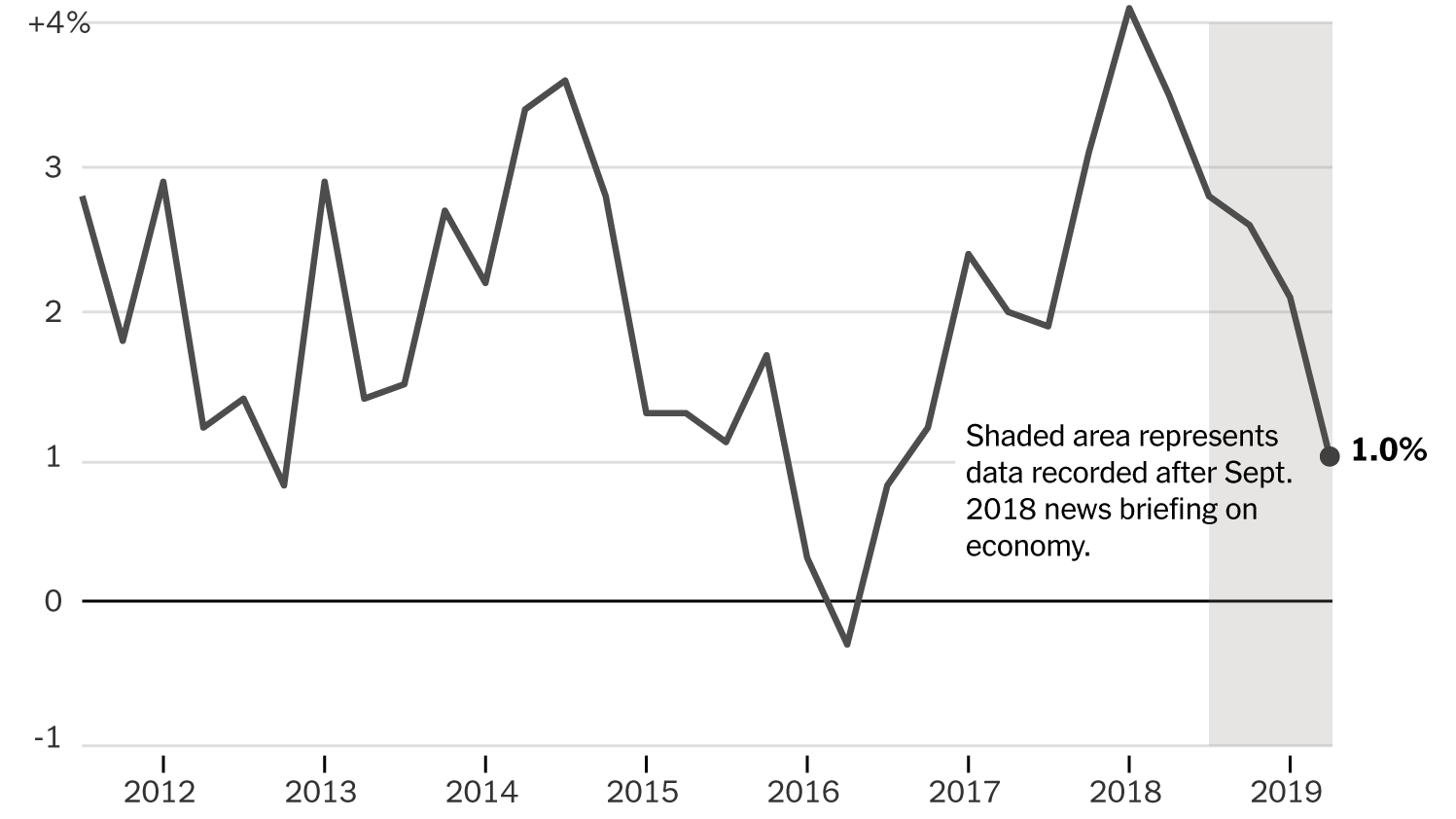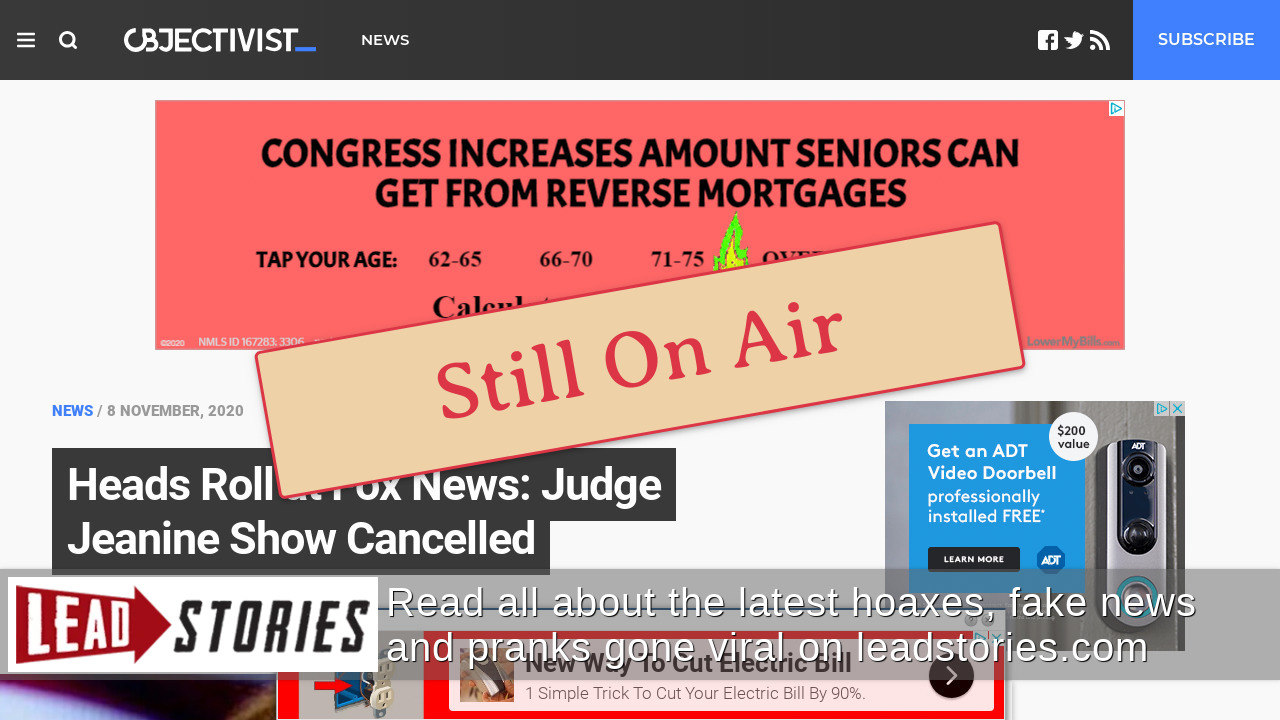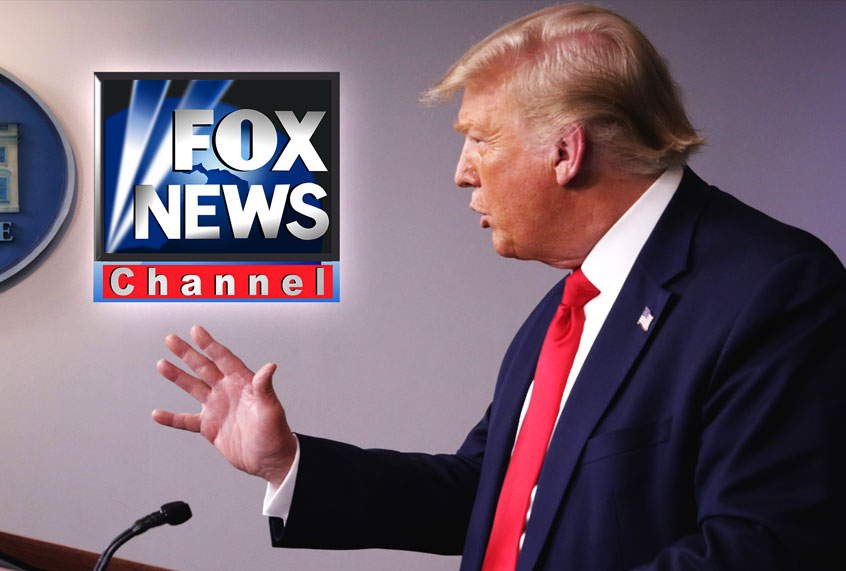Analyzing Trump's Impact: What The Economic Data Reveals

Table of Contents
Job Growth and Unemployment Under Trump
Overall Employment Trends
Analyzing Trump's impact on employment requires a close look at key metrics. During his presidency, the unemployment rate generally trended downwards, reaching a 50-year low of 3.5% before the COVID-19 pandemic. However, it's crucial to consider the context.
- Unemployment Rate: Decreased from 4.7% in January 2017 to 3.5% in September 2019 (Source: Bureau of Labor Statistics).
- Job Creation: The economy added jobs throughout most of his term, although the pace varied. (Source: Bureau of Labor Statistics).
- Labor Force Participation Rate: This remained relatively stagnant, suggesting that the decrease in unemployment wasn't solely due to increased job creation. (Source: Bureau of Labor Statistics).
Comparing these figures to previous administrations reveals a mixed picture. While job growth was positive, it's important to note contributing factors like existing economic trends and technological advancements that may have influenced the numbers independently of any specific policy. The type of jobs created also warrants analysis; were they predominantly high-skilled, high-paying positions, or were low-skilled, lower-paying jobs a greater part of the increase? A detailed breakdown of job sector growth is needed to fully assess Trump's influence on employment quality.
Impact on Specific Demographics
Analyzing Trump's impact necessitates an examination of its effect on diverse demographic groups.
- African American Unemployment: Reached historic lows during parts of his term (Source: Bureau of Labor Statistics).
- Hispanic Unemployment: Also saw significant declines. (Source: Bureau of Labor Statistics).
- Women's Unemployment: Remained relatively low, though not necessarily exhibiting exceptionally improved rates compared to previous administrations. (Source: Bureau of Labor Statistics).
While overall unemployment numbers were positive, it's crucial to examine whether these improvements were evenly distributed across all demographics. Further research into wage growth and income inequality within these groups is essential for a complete understanding of the impact of Trump's economic policies.
GDP Growth and Economic Expansion
Annual GDP Growth Rates
Analyzing Trump's impact also involves assessing GDP growth. The annual GDP growth rates during his presidency were generally positive, though not consistently exceeding those of previous administrations.
- Average Annual GDP Growth: Around 2.5% (Source: Bureau of Economic Analysis), Comparable to, or slightly lower than, averages under previous presidents.
- Factors Influencing Growth: These include tax cuts enacted in 2017, increased government spending, and continued technological advancements. The relative contribution of each factor is subject to ongoing debate among economists.
A simple comparison of raw GDP growth numbers isn't sufficient. We must consider the context of the global economy, potential contributing factors beyond the administration's control, and the sustainability of the observed growth.
Long-Term Economic Sustainability
The long-term implications of Trump's economic policies require careful scrutiny.
- National Debt: Increased significantly during his term. (Source: Congressional Budget Office).
- Budget Deficits: Also rose substantially, raising concerns about future economic burdens. (Source: Congressional Budget Office).
The substantial increase in national debt raises questions about the long-term economic sustainability of the policies implemented. Analyzing Trump's economic impact mandates a consideration of these factors and their potential consequences for future generations. Was the short-term boost in GDP growth worth the long-term debt burden? This remains a critical question to address when assessing his economic legacy.
Trade Policies and Their Consequences
Impact of Tariffs
Analyzing Trump's impact on trade requires focusing on his extensive use of tariffs.
- Steel and Aluminum Tariffs: Led to increased prices for domestic manufacturers and retaliatory tariffs from other countries. (Source: Various trade data reports).
- Tariffs on Chinese Goods: Disrupted global supply chains and impacted various industries, both positively and negatively. (Source: Various trade data reports).
- Impact on Consumer Prices: Many economists argue that tariffs increased consumer prices on a variety of goods. (Source: Various economic studies).
These tariffs had far-reaching consequences, sparking trade wars and potentially harming both domestic and international businesses.
Renegotiation of Trade Deals
Analyzing Trump's renegotiation of trade deals such as the USMCA (United States-Mexico-Canada Agreement), replacing NAFTA (North American Free Trade Agreement), is vital.
- USMCA vs. NAFTA: The USMCA introduced some changes to labor and environmental standards, but the overall economic impact is a subject of ongoing debate. (Source: Various economic analyses of USMCA).
- Short-term and Long-term Implications: The immediate effects may have been limited, but the long-term consequences for trade relations and economic integration within North America are still unfolding.
Assessing the effects requires long-term data analysis and careful evaluation of the complexities involved in international trade agreements.
Inflation and Interest Rates
Inflation Trends
Analyzing Trump's impact on inflation is crucial, given its impact on purchasing power.
- Inflation Rates: Remained relatively low during most of his presidency, but began to increase towards the end of his term. (Source: Bureau of Labor Statistics).
- Impact on Consumer Purchasing Power: Low inflation generally benefits consumers, preserving the value of their money.
However, a sustained increase in inflation can erode purchasing power, and it's essential to look at the trend over the entire period and compare it to previous administrations and historical averages.
Federal Reserve Policy
The Federal Reserve's role is critical in influencing inflation and interest rates.
- Interest Rate Decisions: The Federal Reserve generally kept interest rates low during the early years of Trump's term, supporting economic growth, and then slowly raised them later in response to economic conditions and inflation forecasts. (Source: Federal Reserve Board).
- Impact on Borrowing Costs: Lower interest rates stimulated borrowing by businesses and consumers, boosting investment and spending, but this could contribute to increased debt levels. Higher rates have the opposite effect.
Understanding the interplay between the Federal Reserve's policies and the administration's fiscal policies is essential for a complete analysis of Trump's economic legacy.
Conclusion
Analyzing Trump's impact reveals a complex economic picture. While the unemployment rate reached historic lows and GDP growth remained positive, concerns remain regarding the sustainability of this growth given the significant increase in the national debt. The effects of his trade policies were mixed, with some sectors benefiting while others faced challenges. Inflation remained relatively low, but the long-term effects of the administration's policies are still unfolding. Were Trump's policies effective in achieving their stated goals? The data suggests a mixed outcome, with both positive and negative consequences. A thorough, objective evaluation necessitates continued research and analysis. We encourage readers to delve deeper into specific indicators and related economic policies, continuing to assess Trump's economic policies and evaluating Trump's economic legacy to form their own informed conclusions.

Featured Posts
-
 Rowdy Tellez Revenge Watch Him Dominate His Former Team
Apr 23, 2025
Rowdy Tellez Revenge Watch Him Dominate His Former Team
Apr 23, 2025 -
 Rowdy Tellez Vs Former Team Watch The Sweet Revenge
Apr 23, 2025
Rowdy Tellez Vs Former Team Watch The Sweet Revenge
Apr 23, 2025 -
 Historic Night Yankees Hit 9 Home Runs Judge Leads The Charge In 2025
Apr 23, 2025
Historic Night Yankees Hit 9 Home Runs Judge Leads The Charge In 2025
Apr 23, 2025 -
 Son Dakika Erzurum Okullari Tatil Mi Degil Mi Valilik Karari
Apr 23, 2025
Son Dakika Erzurum Okullari Tatil Mi Degil Mi Valilik Karari
Apr 23, 2025 -
 Mlb Upholds Questionable Plate Call Against Tigers Hinch Seeks Clarity
Apr 23, 2025
Mlb Upholds Questionable Plate Call Against Tigers Hinch Seeks Clarity
Apr 23, 2025
Latest Posts
-
 Aoc Vs Pirro A Fact Check Showdown On Fox News
May 10, 2025
Aoc Vs Pirro A Fact Check Showdown On Fox News
May 10, 2025 -
 Analysis Trumps Appointment Of Jeanine Pirro As D C Prosecutor
May 10, 2025
Analysis Trumps Appointment Of Jeanine Pirro As D C Prosecutor
May 10, 2025 -
 Trade War With Canada Jessica Tarlov Challenges Jeanine Pirros Stance
May 10, 2025
Trade War With Canada Jessica Tarlov Challenges Jeanine Pirros Stance
May 10, 2025 -
 Jeanine Pirro And The Alleged Drunk Episode Implications For Her Dc Appointment
May 10, 2025
Jeanine Pirro And The Alleged Drunk Episode Implications For Her Dc Appointment
May 10, 2025 -
 Political Clash Aoc And A Pro Trump Fox News Anchor
May 10, 2025
Political Clash Aoc And A Pro Trump Fox News Anchor
May 10, 2025
